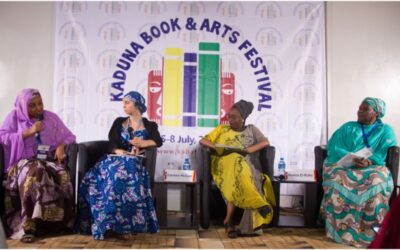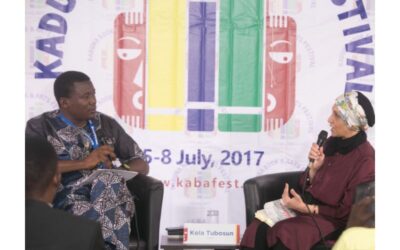Poetry Night
The poetry session as the name implied pulled a canvas of million colors through the night sky and shot stars of fortune on fiery imaginations craving earthly paradise. Canisters of emptied thoughts fell as wordsmiths squeezed metaphoric triggers, sending both pellets and ballistic missiles into unsuspecting craniums and hearts not fully word-proofed to survive poetic assaults. The raging words fired from muzzles of disgruntled poets into auditory auricles seeking consolations ignited volcanoes in the hearts of literary enthusiasts. The night was burdened with energies that exuded ambitious desires, especially to dream-weavers who believed in the barrel of the pen and have been shooting words on blank targets and practicing lyrical aims behind museums, archives and library walls. The metaphysically charged atmosphere invited spirits from abyss of the dead and history to commune with living gods of the pen and to delight in the feast of words set at tables higher than the Olympus and deeper than metal-poles injected into the bottom of mother earth to yield black gold.
Lola Shoneyin’s introduction of the poets was spontaneous. At exactly 7: 37, she invited Dr. Audee T. Giwa of Kaduna State University to the altar of words to empty what he had tasted from Pierian Spring. He spoke of the elasticity of possibilities in modern times, and the plight of men in the hands of women. ‘God cannot give you everything,’ he said, ‘and cannot deny you everything.’ Blessed with a mastery of words, his poem ‘An unknown Eternity’ delivered in perfect rhymes were couched on words sleeker than bones from exhumed corpses. It was a confession of love and the hope that a relationship would last forever.
The suave, afro-carrying Chika Jones came blazing on poetic wheels of steel. His arrival on stage held the audience tight as a bridge of strings even before he uttered a word. Story lines disappeared into philosophical musings rendered with a confidence of a seasoned wordsmith. He spoke of the carefulness of childhood and enduring battles that afforded such a tough existence to assume manly roles. ‘Its not how you walk…’ he said, ‘what matter is you never stop walking.’
Lola extended a hand of love to upcoming poets in Kaduna, bringing on stage Daisy – ‘We Must Die to Fly.’ Dami Ajayi who read from his Clinical Blues and his phone depicted an impeccable picture of a society wrought by crimes, corruption, maladministration and political instability.
Metaphoric lines like ‘Justice is a small bird with a big beak,’ peppered his poetic rendition. Borrowing from hip hop culture, he compared Shekau, the mastermind behind the Chibok girls’ abduction, to Jay Z’s song: ‘Girls, girls, girls.’ He lamented the loss of youth in the Nigerian population especially brainwashed happy-go-lucky bombers who blast themselves in the name of serving a god.
Efe Paul Azino’s electric delivery and wonderful baritone was one for the ages. His employment of urban suburban imagery painted pictures of nightlife across cities as well as unravelling a bohemian love story. The deployment of literary allusions, particularly, book titles weaved a national history that ended up becoming an ode to storytellers. ‘For the last ones left,’ he called writers, ‘my tribe, this one is for you.’
Lukman Hussein’s poem and it’s repetitive ‘There’s more’ gave a musicality encored by the audience. And when Maryam Bukar Hassan charmed the audience with grace and a mellifluous voice with ‘Yes You Can’, a poem dedicated to all on the verge of giving up, the house was roused to its feet. She code-switched to Hausa and again rendered the poem she recited at the opening of the festival on special demand. Aaron came on stage with ‘You,’ ushering in Sadiq Dzukogi at 8:15. Sadiq’s poem portrayed the plight of internally displaced people and the miseries suffered at the camps. After a family poem and a love song to his baby-daughter, Al-Amin Bugaje’s encyclopedic poem stringed a necklace of many subjects: racism, history, fear, explosions, crisis, and courage. His philosophical ending; ‘I believe in everything and nothing at all’ was epic.
Anselm Ngutsav Sessugh of Purple Silver Open Mic delivered a politically charged poem that was at once anti-colonial. His citation of A Hundred And One had the aura of an Old Testament prophet speaking to the wilderness of our minds. Then came the wealth of northern imagery from Sada Malumfashi. His performative poem garnered a lot of responses from the crowd as well as their involvement. Lola came on stage to invite the Lagos talent Titilope Sonuga. She was an epitome of cool, calm and collected. Her delivery was therapeutic. It simmered and seethed into hearts with the surreptitious serenity of a serpent, and was poisonous too. Didactic, transformative, Sonuga delivered thought-provoking lines that experiments with wordplays, metaphors, and rhetoric that melted into a poem recited in reverse!
After James Ademuyiwa came Wana Udobang’s ground-shattering, declarative ‘This Is Not A Feminist Poem.’ She succinctly captured the travails of the modern woman, the six (6) year old girl raped on her way back from school, bosses preying on secretaries, typists and assistants that hoped to support their families on meagre salaries; and the struggles of women in a patriarchal setting. The poem’s rejection from being feminist only reinforced its thematic concerns. She concluded by wishing the best for soul sisters fighting every day to get by, but not before treating the audience to a sumptuous dish of her palate-watering plate of poetic ‘Cat Fish’.
The technical blunder discovered at the overflowing room begged for a long awaited encore. Lola spoke to the conscience of the poets to offer shot pieces to those unable to watch their live performances and the audience were delighted to be served another dish of poetic delicacy.
Written By Dominic Aboi

